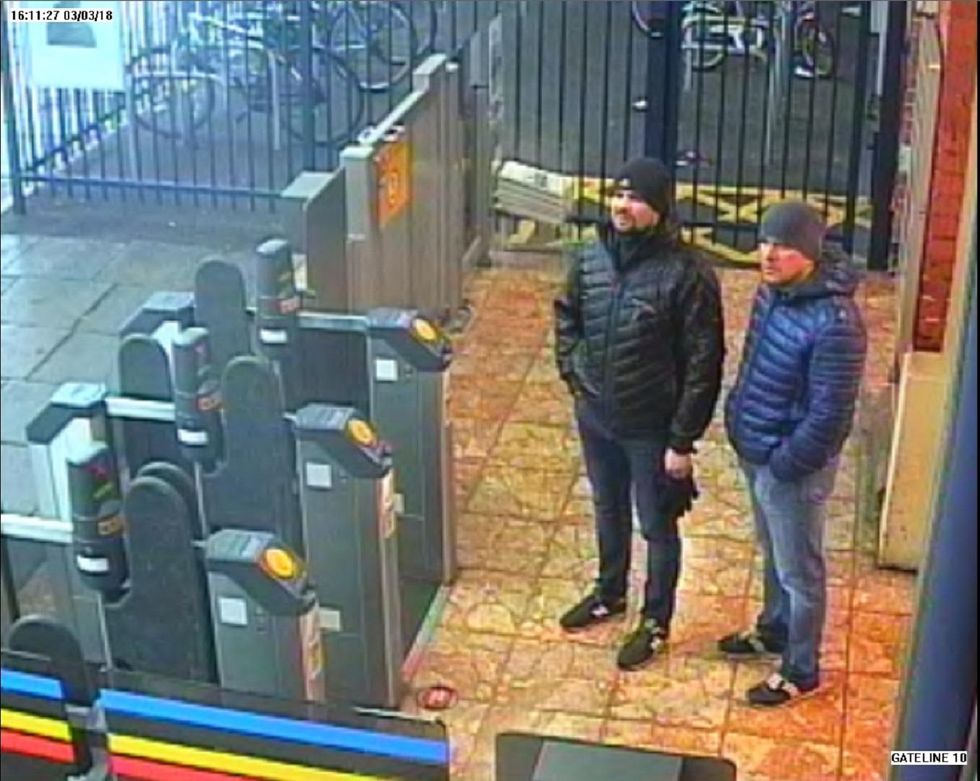Two Russian nationals suspected by British authorities of carrying out an assassination attempt on former Russian double agent Sergei Skripal have insisted that they were in Skripal's small English town only to see the cathedral there.
What do we know about the poisoning attempt?
On March 4, Sergei Skripal and his daughter Yulia were poisoned by the Soviet-made nerve agent Novichok, which had been deposited on the front-door handle of Sergei Skripal's home in Salisbury, England. Skripal had been a former Russian Army colonel working for the GRU, the Russian military intelligence agency. He had used his position to funnel information to British intelligence, before he was eventually caught and imprisoned. He was later traded to the U.S. government as part of a spy swap, and eventually settled in England.
After searching through airline manifests and CCTV footage, British authorities announced that they believed the culprits behind the attack were Alexander Petrov and Ruslan Boshirov, a pair of Russian nationals who had arrived in England two days before the attack and flown back to Russia several hours after the attack took place. British authorities identified the two men as belonging to the GRU.
The Novichok had been administered using a perfume bottle, which was later discarded. A couple in nearby Amesbury found the perfume bottle and were exposed to the nerve agent, leading to one of their deaths.
British Prime Minister Theresa May has insisted that these men did not act as rogue GRU operatives, but that the attack “was almost certainly approved … at a senior level of the Russian state.”
What did the two Russians say?
During an interview on the Russian state television network RT, Petrov and Boshirov confirmed that they were the two men captured on CCTV footage visiting Salisbury on two separate days: March 3 and March 4, when the Skripals were poisoned. However, they insisted that they visited the town only as tourists, and that the March 3 visit had been aborted due to snowy conditions.
“Our friends have been suggesting for a long time that we visit this wonderful town,” Petrov said during the interview.
Boshirov added, “There's the famous Salisbury Cathedral. Famous not only in Europe, but in the whole world. It's famous for its 123-meter spire. It's famous for its clock, one of the first ever created in the world that's still working.”
“You can't imagine what it's like. We'd like if one day the real perpetrators are found, and we're given an apology,” Petrov insisted.
The men also denied that they were members of the GRU. However, they refused to say where they did work, arguing that “if we tell you about our business, people we work with will be affected.” They later claimed to be in the “fitness industry.”
The two also dismissed the notion that they had carried a bottle of perfume into the country.
“Isn't it silly for decent lads to have women’s perfume? When you pass through customs, they check all your things,” Boshirov told RT.
A spokesman for the Theresa May's office dismissed the reasons given by Petrov and Boshirov.
"The lies and blatant fabrications in this interview given to a Russian-state sponsored TV station are an insult to [the] public's intelligence," the spokesman said.
What else?
RT's editor-in-chief, Margarita Simonyan, who conducted the interview, has pushed the theory that Petrov and Boshirov were not in Salisbury because of Skripal or the cathedral. Instead, she strongly implied, they had made the trip to England because they were gay.
“Guys, I don’t know if they’re gay or not gay,” she insisted on Twitter, while mentioning their tight clothing and biceps adding that they had not tried to hit on her.
Another Russian journalist, Oleg Kashin, and The Guardian both theorized that this speculation by Russian state media could be an attempt to provide a better defense for the trip to Salisbury than the cathedral story.
How famous is the Salisbury Cathedral?
The current Salisbury Cathedral was built in A.D. 1220, after being moved from its original 1092 location. In addition to having the tallest spire in Great Britain and what is potentially the world's oldest working mechanical clock (which dates back to at least 1386), the cathedral also houses the best preserved of the four remaining copies of the Magna Carta.
This legal document, signed by England's King John in 1215, played a pivotal role in the formation of modern British and American law. While the two Russians mentioned both the spire and the clock as reasons for their visit, they did not refer to the Magna Carta.
Maya Lomidze, the executive director of Russia’s Association of Tour Operators, told The Guardian that while Russian tourists often stop at Salisbury during visits to nearby Stonehenge, “the cathedral is not usually the main destination for tourists.”

